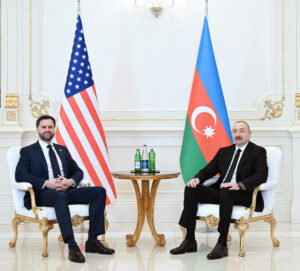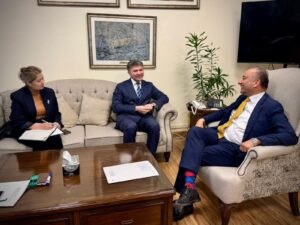Successes of Pakistan’s Foreign Policy: A Journey Toward Sovereignty, Stability, and Peace

Pakistan’s foreign policy over the last few years has undergone a remarkable transformation. Rooted in the principle of non-alignment, it has sought to balance relationships with major powers while deepening bilateral ties with regional partners and exploring new avenues of economic diplomacy. Pakistan has demonstrated its commitment to a principled and independent foreign policy, refusing to be drawn into global power rivalries and instead focusing on peaceful coexistence, economic cooperation, and multilateral engagement.
Pakistan’s foreign policy is anchored with a non-alignment policy, a stance that resonates with prioritizing sovereignty, peace, and moral responsibility. Islamabad’s principled approach is not just about neutrality but also about advocating for diplomacy over aggression. This balanced diplomacy enables Pakistan to engage constructively with both Western powers and emerging global players such as China, Saudi Arabia, Turkey, and Central Asian states. Its non-aligned posture strengthens its moral position on issues such as the Israel-Palestine conflict, Kashmir, and Islamophobia, reinforcing Pakistan’s image as a responsible international actor advocating for global peace and justice.
Growing Relations with the United States

Pakistan’s growing relations with the United States reflect a renewed commitment to strategic cooperation, particularly in military engagement and counterterrorism efforts. The Trump administration has prioritized practical collaboration with recent high-level visits, such as that of Gentry Beach, highlighting USA interest in strengthening economic ties with the discussions on trade, mining, and minerals signaling a shared vision for mutual prosperity. This multifaceted partnership spans political, security, and economic dimensions. As relations continue to progress, there is strong potential for expanded U.S. military and economic support with Pakistan, transitioning engagements toward a more inclusive, development-driven, and diplomatically rooted partnership.
Deepening Pakistan-China Ties

Pakistan-China relations continue to flourish under the visionary leadership of both nations, grounded in mutual respect, trust, and strategic alignment. Frequent high-level visits and robust strategic dialogues underscore the depth of this “All-Weather Strategic Cooperative Partnership.” China’s unwavering support for Pakistan on core issues, including Kashmir and counter-terrorism, has further cemented its status as an “ironclad friend.” In return, Pakistan has also unwavering support for China’s interests. With the now entered transformative China-Pakistan Economic Corridor (CPEC) phase 2 focusing on high-quality development, industrial relocation, technology transfer, and sustainable growth, they reaffirmed a joint commitment to building a China-Pakistan Community of Shared Future, with enhanced cooperation in clean energy, agriculture, science, and cultural exchanges. Both countries are committed to deeper economic, security, and people-to-people ties, setting a powerful example of enduring strategic partnership and shared progress in a new era of global cooperation.
Ties with Gulf nations

Pakistan’s deepening strategic ties with Gulf nations mark a new era of regional cooperation and economic revival. In 2025, Islamabad has actively expanded trade, investment, and diplomatic relations with key Gulf partners, including the UAE, Saudi Arabia, and Qatar. A pivotal meeting between Deputy Prime Minister Ishaq Dar and UAE Foreign Minister Sheikh Abdullah bin Zayed on April 2025 laid the groundwork for enhanced cooperation in trade, energy, and defense. Saudi Arabia’s high-powered delegation, followed by Prime Minister Shehbaz Sharif’s visit to Riyadh, led to MOUs totaling $2.8 billion, reinforcing Crown Prince Mohammed bin Salman’s earlier pledge of a $5 billion investment. Similarly, UAE President Sheikh Mohamed bin Zayed announced a landmark $10 billion investment across real estate, tourism, energy, and technology sectors. Qatar also reaffirmed its commitment with a $3 billion investment. These strategic engagements reflect Pakistan’s growing stature as a vital regional partner and its commitment to shared prosperity, connectivity, and long-term stability.
Building Cooperation with West Asia & Central Asia
Pakistan’s deepening ties with Iran and Turkey are based on mutual respect, shared interests, and robust cooperation. With Iran, Pakistan has set an ambitious $10 billion trade target and advanced key energy projects, signaling a resilient and forward-looking partnership. Discussions on defense collaboration, regional security, and joint ventures in military equipment further underscore the evolving strategic trust between both neighbors. Meanwhile, Pakistan-Turkey relations have reached new heights in 2025, driven by Ankara’s consistent support and a shared vision for peace and prosperity. President Recep Tayyip Erdoğan’s February visit to Islamabad and Prime Minister Shehbaz Sharif’s April trip to Turkey resulted in 24 landmark agreements across defense, energy, infrastructure, education, and cultural exchange. This trilateral momentum illustrates Pakistan’s commitment to building a cooperative regional framework, enhancing economic ties, bolstering defense capabilities, and contributing to regional stability and development through enduring and strategic partnerships with Iran and Turkey.

Prime Minister Shehbaz Sharif’s landmark visits to Azerbaijan and Uzbekistan in February 2025 signify a strategic leap in Pakistan’s engagement with Central Asia, reinforcing its “Vision Central Asia” policy. This high-level diplomacy highlights Pakistan’s commitment to forging deeper ties through enhanced economic integration, trade expansion, defense collaboration, and regional connectivity. The signing of multiple MoUs and trade agreements, especially in infrastructure, energy, and logistics, aligns national development with regional prosperity. These initiatives not only strengthen bilateral relations but also catalyze broader regional integration. Pakistan’s unique geostrategic position as a gateway to the Arabian Sea offers Central Asian republics critical access to global markets. Pakistan is emerging as a pivotal player in the evolving Eurasian trade and connectivity landscape by positioning itself as a bridge linking South Asia, Central Asia, and the Middle East. These forward-looking steps promise shared growth, stability, and long-term regional cooperation.
Pakistan’s foreign policy has successfully shifted toward geo-economics as its central pillar, which has led to a surge in foreign investments and building cooperation with all countries. Pakistan’s foreign policy today reflects a confident, pragmatic, and sovereign approach to global engagement. Pakistan avoids entanglement in great power rivalries and instead focuses on promoting peace, economic development, and multilateral cooperation, adhering to a principled stance of non-alignment. The shift towards geo-economics, as championed by our leadership, is yielding tangible results: increased foreign investment, stronger bilateral ties, and a more diversified economic outlook. As Pakistan moves forward, it does so with a renewed spirit of optimism, stronger international partnerships, and a foreign policy that places national dignity, economic resilience, and regional peace at its very core.


